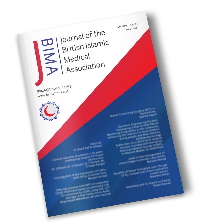
When we think of public health, our minds often go to large scale governmental initiatives such as fluoridation of water, banning smoking in public spaces and traffic control measures to reduce pollution from cars. While these are all accurate examples, there is another way of implementing public health messages that is more grassroots.
The Mosque Lifesavers project is one such example. It has completely reimagined public health and come up with some surprising results. In place of a governmental approach, the project is organised by healthcare professionals from within local communities. Rather than educating the public through marketing campaigns, the venues are mosques that are based within the heart of the community. Instead of focusing on a specific locality, the Mosque Lifesaver project can be replicated anywhere across the world.
Why focus on Basic Life Support?
This is an issue of life or death (literally) but also, it fills a gap in the current public health arsenal of nations worldwide. Teaching all citizens Basic Life Support is something that need not cost a great deal, but will have significant return on investment. Yet, somehow, countries of all shapes and sizes fail to have a system to teach it.
In addition to the above, Basic Life Support is something that every single healthcare professional is trained in and could conceivably train others in without the need for expensive equipment or even a lot of time.
Why the mosques?
We needed a venue that was free of charge, present worldwide and that resonated with the local community. The mosque was an ideal candidate that ticked all the boxes. In addition to this, there is a great deal of benefit that can come from increasing the links between healthcare professionals and mosques – such as future educational events on immunisation, cancer screening or indeed any other form of health promotion.
The Mosque Lifesaver project started life in the British Islamic Medical Association, but has since been taken up by other Islamic Medical Associations via FIMA (the Federation of Islamic Medical Associations). It has the ability to not just provide a valuable service to communities across the world, but to rethink how public health is delivered to them too.

